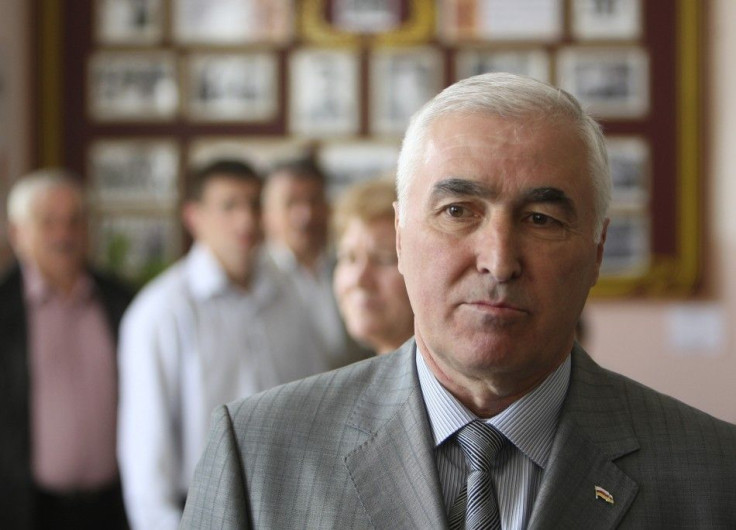Ex-KGB Agent Tibilov Wins South Ossetia Presidential Elections

Former KGB chief Leonid Tibilov was named the president of South Ossetia -- the breakaway republic within the nation of Georgia -- on Sunday.
Tibilov defeated South Ossetia's human rights ombudsman David Sanakoyev with 54 percent of the vote during a run-off election. Sanakoyev received 42 percent.
Our people are wise, politically mature and ... I am president-elect, for which I'm thankful to our citizens. The president must not alienate the people. I will work to unite and rally society, Tibilov said in his victory speech, the Moscow Times reported.
Like Russian President-elect Vladimir Putin, Tibilov is a former KGB agent and he led the spy agency's operations in South Ossetia in the 1990s. Politically, Tibilov also leans toward the Kremlin and wants to deepen the region's ties with Putin's Russia in hopes of invigorating South Ossesia faltering economy. New measures under Tibiliov could include uniting South Ossesia with the Russian federal district of North Ossetia.
“We will certainly continue along the course towards Russia that has been chosen by our people -- a course of further integration … in all existing spheres, including the economy, as well as military, technical, and defense cooperation,” he said, according to RIA Novosti. [South Ossetia] has been and will continue being a devoted partner of Russia at its southern borders.
“On election day, I said that I would consult with the people, but my goal is to make the long-standing dream of a united North and South Ossetia come true,” the president-elect said.
Moscow has not made an official statement about the election results, but a number of Putin allies hailed Tibilov's victory and the future of South Ossetia-Russia relations, RIA Novosti reported. During invalidated presidential elections in South Ossetia last November, the Kremlin's preferred candidate Anatoly Bibilov was defeated by former education minister Alla Dzhioyeva, a critic of corruption in Russia.
After his stint in the KGB, Tibilov acted as the first deputy prime minister and co-chair of a Georgian-Ossetian peacekeeping commission, and he has served as the chairman of board of directors of a bank in Tskhinvali.
Georgia does not recognize South Ossetia, which declared its independence in the early 1990s; the two regions have fought three wars since, the latest the 2008 South Ossetia war in which Russian forces gained full control of the territory. Tbilisi refused to recognize the legitimacy of Sunday's elections, Civil Georgia reported, as well as the Russian occupation.
“Not a single act in that territory can be considered as legal as long as this territory remains occupied and as long as people are not allowed to return back to their homes,” Nino Kalandadze, Georgia’s deputy foreign minister, said on Monday.
“After Russia’s total failure in the first attempt [in November] to install its favorite candidate, it seems they prepared much better for [the repeat polls],” Davit Bakradze, the Georgian parliamentary chairman, added.
South Ossetia's authority is only recognized by Russia and a handful of other countries, including Venezuela and three Pacific island nations, and, despite a consideration by international monitors that Sunday's vote was “open, free and transparent, the United States and European Union also refused to recognize the legitimacy of the elections.
© Copyright IBTimes 2024. All rights reserved.





















